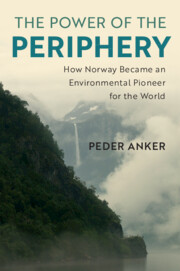Crossref Citations
This Book has been
cited by the following publications. This list is generated based on data provided by Crossref.
Leirhaug, Petter Erik
Grøteide, Håvard
Høyem, Håkon
and
Abelsen, Kristian
2020.
Naturopplevingar, miljøbevisstheit og livsmeistringi vidaregåande skule.
Norsk pedagogisk tidsskrift,
Vol. 104,
Issue. 3,
p.
226.
Müller Gjesdal, Anje
2021.
Fortellinger om bærekraftig utvikling.
p.
39.
Heymann, Matthias
2021.
Places matter: virtues and challenges of geophysics in Bergen.
Metascience,
Vol. 30,
Issue. 3,
p.
445.
de Bengy Puyvallée, Antoine
and
Bjørkdahl, Kristian
2021.
Do-Gooders at the End of Aid.
Bjørkdahl, Kristian
2021.
Do-Gooders at the End of Aid.
p.
60.
Westskog, Hege
Julsrud, Tom Erik
Kallbekken, Steffen
Frenken, Koen
Schor, Juliet
and
Standal, Karina
2021.
The role of community sharing in sustainability transformation: case studies from Norway.
Sustainability: Science, Practice and Policy,
Vol. 17,
Issue. 1,
p.
334.
Biasillo, Roberta
2022.
Augmented Regimes.
Journal for the History of Environment and Society,
Vol. 7,
Issue. ,
p.
129.
Ritson, Katie
2022.
Sweat, Light, and Oil: Seeing the Energy in Roy Jacobsen’s Barrøy Novels.
Edda,
Vol. 109,
Issue. 2,
p.
126.
Sörlin, Sverker
2022.
Resource Extraction and Arctic Communities.
p.
3.
Notaker, Hallvard
2022.
Beacons of Nordicity: Nordic Conservation Day 1970 and the reimagination of history.
Scandinavian Journal of History,
Vol. 47,
Issue. 5,
p.
648.
2022.
Resource Extraction and Arctic Communities.
p.
183.
Flyen, Anne-Cathrine
Avango, Dag
Fischer, Sandra
and
Winqvist, Camilla
2022.
Resource Extraction and Arctic Communities.
p.
185.
Eriksen, Thomas Hylland
2022.
The Sustainability of an Anthropology of the Anthropocene.
Sustainability,
Vol. 14,
Issue. 6,
p.
3674.
2022.
Resource Extraction and Arctic Communities.
p.
1.
Lorange, Peter
2023.
Learning and Teaching Business.
p.
3.
Buns, Melina Antonia
2023.
Making a model: the 1974 Nordic Environmental Protection Convention and Nordic attempts to form international environmental law.
Scandinavian Journal of History,
Vol. 48,
Issue. 1,
p.
93.
Baard, Patrik
2024.
Sovereignty, ecology, and regional imperatives: formulating normative foundations for regional ecological justice.
Territory, Politics, Governance,
p.
1.
Bruns, Catherine J.
and
Andersen, Ida Vikøren
2024.
The Worth of Nature: Valuations of Glaciers in Alaskan and Norwegian Media Discourse.
Environmental Communication,
Vol. 18,
Issue. 3,
p.
250.
Kass, Susanne
2024.
Technology and Interspecies Musical Practice.
Biosemiotics,
Vol. 17,
Issue. 2,
p.
565.
2024.
Stockholm and the Rise of Global Environmental Governance.
p.
8.



